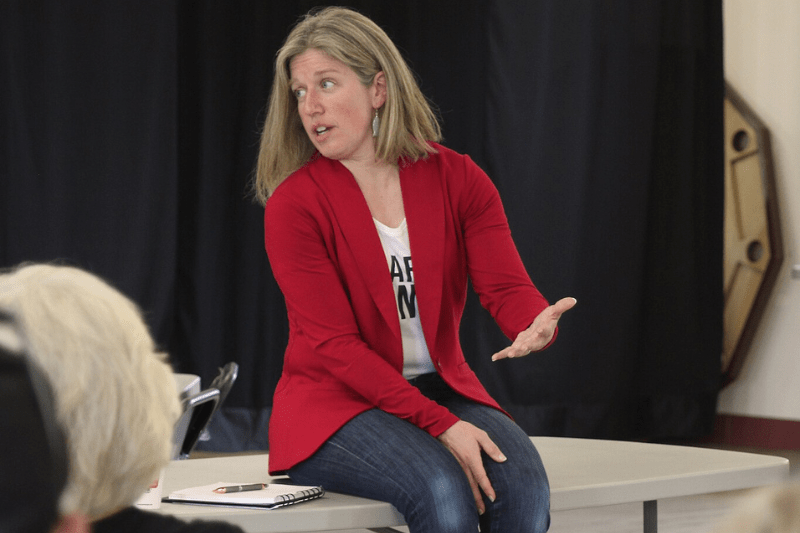By John Chilibeck | The Daily Gleaner
The union representing thousands of nursing home and school workers in New Brunswick says it will begin negotiations with the Holt Liberal government to replace their members’ costly pension plans that, without any changes, could force taxpayers to shell out hundreds of millions in extra payments.
Iris Lloyd, the new president of the Canadian Union of Public Employees in New Brunswick, or CUPE, said she would honour that commitment immediately after the Liberals and Greens voted in favour of repealing a law passed by the previous Higgs Progressive Conservative government that the union hated.
That controversial law, passed in late 2023, was going to force the conversion of their defined-benefit pensions to a shared-risk plan that was not of their choosing.
The opposition Tories, who spent hours in the legislature last week debating against the repeal, warned that the Liberals were making a financially irresponsible move that would make the pensions unsustainable for workers.
“We feel really good. This is a very good day for labour,” said Lloyd, a school custodian from Saint John, in an interview. “We’d like to thank the Liberals and the Greens for doing what was right for public service workers across this province.”
Lloyd was less impressed with the Tories.
“There was a lot of filibustering today, but for us it was about being able to come back and properly negotiate those pensions.”
The union leaders say they hope to settle on a new pension plan that would be acceptable to both sides.
During the Higgs era, the union had pitched joining the CAAT pension plan, based in Ontario, which has tens of thousands of members who work for a wide variety of public and private employers. It is considered financially healthy. As of the end of last year, the CAAT plan was 124 per cent funded, meaning that for every dollar promised in pensions, $1.24 had been set aside.
It is a jointly sponsored pension plan, and while still considered a defined-benefit plan, has some elements of shared-risk. Former premier Blaine Higgs rejected CAAT as far too expensive for taxpayers.
Glen Savoie, the interim Tory leader and head of the Official Opposition, said that by repealing the old bill, the Liberals had just signed a blank cheque.
“The government hasn’t set a clear plan,” he told Brunswick News. “They’ve set absolutely no timelines for their expectations on negotiations, so we don’t know how long New Brunswick taxpayers are going to continue to pay the unfunded liability of the plans.”
CUPE and the former Higgs government had clashed severely over the pensions of the 7,200 workers, many of whom make the lowest wages of any public servants in the province, such as bus drivers and custodians at schools and resident attendants and cooks at nursing homes.
An even greater number of retirees – about 9,000 – depend on the pensions.
The Tory government had said it would pay $365 million to convert the plans to shared-risk and erase the unfunded liability, or financial shortfall. That liability was estimated at $285 million.
The conversion would have been similar to the shared-risk model that up to 80,000 other public servants and retirees were switched to a little over a decade ago, a move that largely erased an estimated $5.5-billion shortfall that taxpayers were on the hook for shoring up.
As the name would suggest, a shared-risk plan puts a bigger burden on members of the plan, not just the government, to make up any financial shortfalls when stock markets plunge and pension funds sink.
What set the five CUPE locals representing school and nursing home workers apart was the protection of their defined-benefit plans in their collective agreements. When negotiations between the two sides broke down a few years ago, the Higgs government barreled ahead to force the conversion of their plans, ignoring the protections in their expired contracts.
The passing of the bill in December 2023 led to three CUPE leaders being temporarily banned from the legislature for protesting in the public gallery. The union also sought a court injunction to stop the conversion of the pensions and a charter challenge.
What happened during those failed negotiations is still in dispute. The Tories say the union dug its heels in, whereas labour leaders argue it was the former government that acted in bad faith behind closed doors.
The union leaders are more optimistic they can make a deal with the Liberals.
“There was no negotiating last time because the Conservatives had made up their mind,” said Sandy Harding, regional director of CUPE Maritimes, in an interview. “It was really irritating to hear them debate inside the legislature because they spouted the same lies as they did when they passed their own bill.”
Several of the Tories had pointed out that six out of 10 working New Brunswickers don’t have any kind of employer-sponsored pension plan, yet they would still be footing the bill for the CUPE members’ retirement shortfall. By their math, it worked out to $700 for each working New Brunswicker.
Tammy Scott-Wallace, a former minister and the Tory MLA for Sussex-Three Rivers, said it was unfair for a single mother in Sussex, a young family in Apohaqui or a small business owner in Petitcodiac to pay that bill.
“This is a turning point that affects every single New Brunswicker,” she pleaded.
But Harding pointed out that her members were among the lowest-paid public workers in the province, some of whom will only make a pension of between $6,000 and $8,000 a year.
The Holt government has emphasized the need for patching up relations with labour groups. On Friday, it announced it had reached a tentative collective agreement with CUPE local 1253, the school workers who are part of the pension battle.
The news release stated that the parties had agreed to withhold details of the agreement, such as pay increases, until it is ratified.






